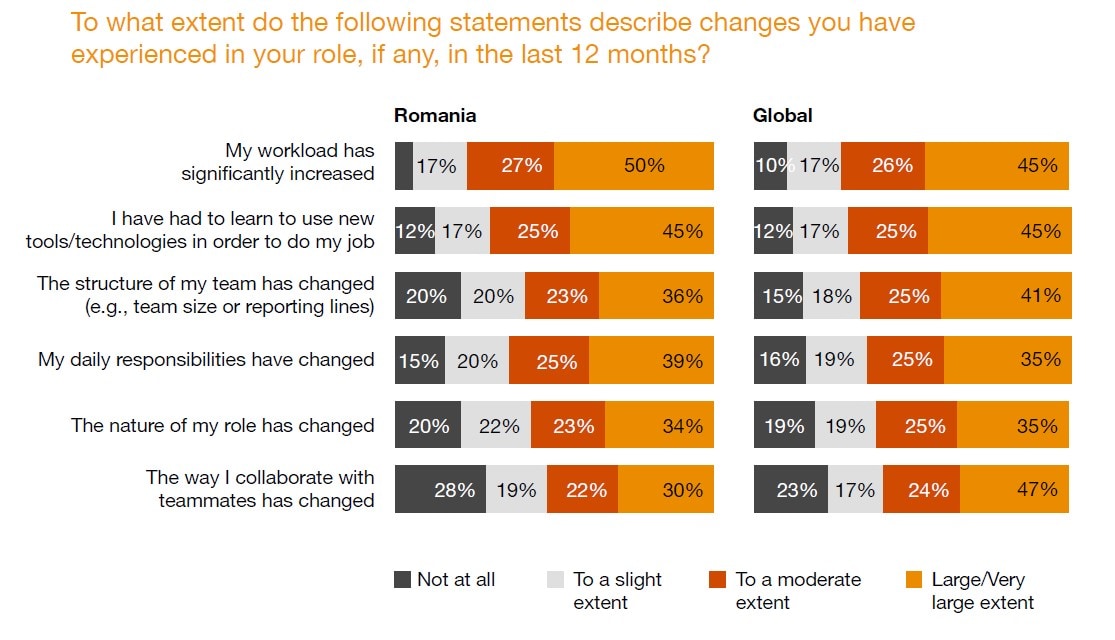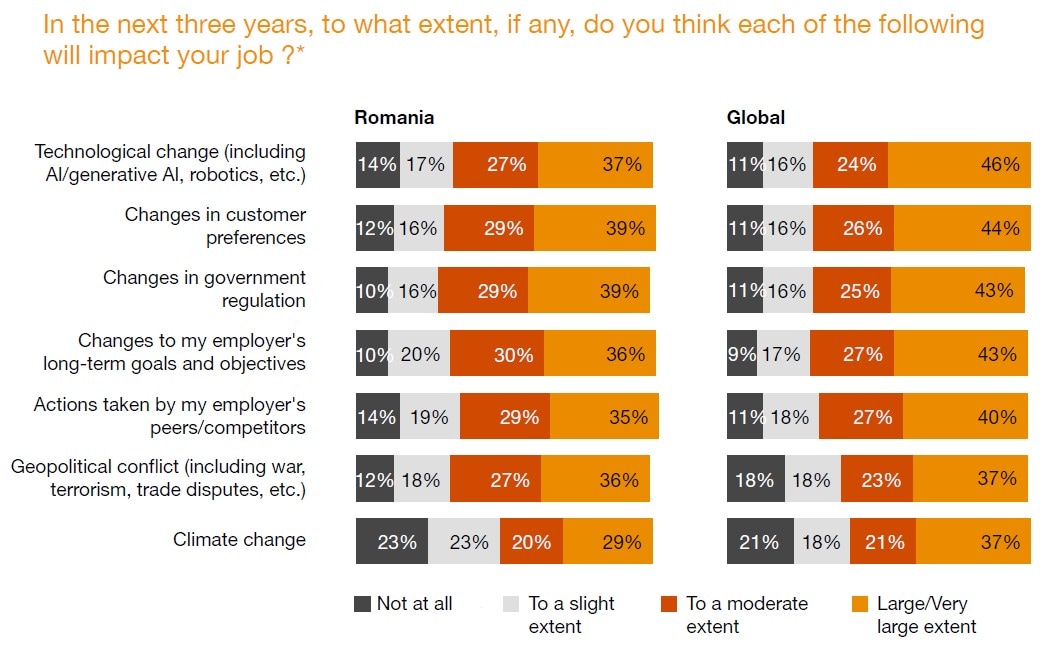
Employees are increasingly feeling the pressure of change that organisations have faced in recent years as they struggle to keep up with new technologies, regulations and other business trends. The good news is that employees are optimistic and engaged, with most showing a willingness to adapt to new ways of working, learn new skills and embrace emerging technologies such as generative artificial intelligence (GenAI). In this context, employers need to ensure that they are investing in both people and technology to alleviate pressures and retain talent.
GenAI has the potential to disrupt business models and fundamentally change certain industries. Companies need to carefully assess the risks involved, while moving quickly to seize the opportunities. This can only be done with the involvement of employees. Cultivating transparency and trust in the implementation of the GenAI strategy can help employees feel encouraged to experiment and ultimately innovate with this technology.


Technological innovation has always reshaped the labour market and created new opportunities. Although AI is being rapidly adopted and can perform more tasks than previous technologies, it will not lead to an overall decline in jobs. However, it is essential to adapt to the new realities. The Hopes and Fears Survey 2024 confirms once more the need for a proactive attitude to continuous learning from both employers and employees, while flexibility and openness to change are key assets in a job market reshaped by artificial intelligence and significantly disrupted by the geopolitical and economic context.
Key Highlights
Half of the Romanian workers say their workload has increased significantly in the past year, while almost two-thirds (61%) perceive a higher pace of change at work over the same period.
- GenAI is used daily by 5% of Romanian workers, with 47% of those workers expecting it to make their time at work more efficient in the next 12 months, and 40% of all users expect it to lead to higher salaries. The same percentage believe it will increase job security.
- One-fifth of the respondents (20%) say they are very or extremely likely to switch employers in the next 12 months – two percentage points higher than in the previous report.
- Employees prioritise skills growth: 59% agree that their employer provides adequate opportunities to learn new skills that will be helpful in the future career. Such opportunities are also a key factor in any decision to switch jobs for fewer than half (46%), who say opportunities to learn new skills are a key factor in any decision to make such a switch.
- Cost-of-living pressures have eased slightly: the proportion of workers with money left over for saving, holidays and extras each month has risen to 32% (compared to 26% in 2023). However, 55% say they are still financially stressed (meaning that they are able to pay all bills every month but have very little or nothing left over for savings, holidays and extras), down from 57% in 2023.

Lead in new ways to build resilience among a stressed-out workforce
The risk of your workforce experiencing fatigue and feeling overwhelmed is currently high. Half of respondents say their workload has increased significantly in the last 12 months, and 45% admit they have had to learn new technologies to do their job, among other changes in their roles and responsibilities.


Forces that drive job transformation
Almost 40% of the Romanian employees believe that changes in customer preferences and changes in government regulation will be the main drivers reshaping jobs, followed by technological change (36%). By comparison, globally, technological change is considered the top factor that will impact jobs, as mentioned by 46% of respondents.

Contact us








